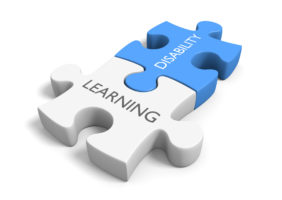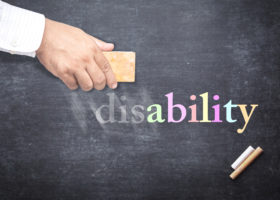Building a Strong College List for Students with Learning Disabilities with CIT Consultant Paige Feldman

Hello Paige! You’ve worked for decades as an educator and educational consultant with students with learning disabilities. Is there a ‘best’ college for students with disabilities, and what are some best practices you employ when working on college lists with students with an LD?
The question of whether there is a “best” college is a great one, and difficult to answer. To begin with, no two students are alike, and there are variations within disability types. One college may be great for students with autism spectrum disorder but may not be suitable for students with dyslexia or ADHD. It is crucial to understand your child and what they need to succeed in college. It is crucial to understand your child and what they need to succeed in college. Success is somewhat amorphous and can be fluidly understood by families in multiple ways.”
When we think of the ‘best fit,’ it is essential to evaluate the college’s strengths and weaknesses. Does your child need small classes, and why? How does your child learn? Why would it be necessary for your child to connect to Professors? If you explore your child’s strengths with your consultant, this will facilitate college list-building with your criteria.
I often define a college fit by visualizing an equilateral square. Each side represents a portion of the college process: academic, financial, social, and then the added layer of disability services. As a student who may be an athlete might be looking for a D2 school where they would get playtime, students with disabilities will be looking for colleges that simplify the access to accommodations. Once admitted, it is imperative to dive deeper into the services/accommodations and the student’s process to access them.

Do I need to inform a school that my child has disabilities before we apply?
The simple answer is No. Students with disabilities are not required to inform colleges before applying that they need services. Be aware that students apply for accommodations after they are admitted and enroll at a college. Also – what they do or don’t say when applying to college has no bearing on their ability to apply for accommodations once they enroll.
What Accommodations are available in college, and how does my child access them?
It is important to know that Disability Services are different at every college. Some disability services are an actual location/place, and some are just a person. When requesting accommodations, each college will have different criteria. Some colleges will need psychological testing, a doctor’s diagnosis, or the most recent 504/IEP. Some colleges will assess students through an interview process, and others will require a more formal assessment. Typical accommodations for a student with ADHD at one school may be entirely different for another student at the same school.
Does every college have to provide disability services to my child?

Legally, federally funded colleges/universities are required to provide access to the curriculum through accommodations for students with disabilities. However, they are not required to promise success. Once the college has determined that a given student will be provided with accommodations, this process will not have to be revisited every year. Exceptions are when the student has a newly added diagnosis and is asking for more or different accommodations.
Please reach out to your consultant at CIT so they can help you determine the best process at the different colleges. Accommodations do not change the expectations or the core curriculum. The most common accommodations are: extended time on tests (1.5 or 2 times but are not unlimited or over multiple days), reduced distraction site-free testing environments (at some colleges, you will need to reserve a room proactively, or the professor decides where this will take place), smart devices/pens or calculators (exceptions are in teaching degrees where basic knowledge of math is required), note-takers (but not all classes will have this at every college), priority seating, text to speech software (most colleges provide this to all students through free subscriptions, check out basis or use in the library).
What should my child expect in terms of working through accommodations with professors?

Disability services may provide Professors with a list of students and accommodations at the beginning of each semester. Other colleges will ask the student to provide the professor with this information. At some colleges, the student must advocate for accommodations on an ongoing basis for every test and assignment. In some colleges, this will be accomplished through disability services.
Are profs made aware of accommodations? Is it best for my child to speak to each of their professors about them?
The answer to this question is complicated. Each college has a different procedure to follow when the student is requesting accommodations. For example, at American University, the student must advocate for themselves, reminding professors to send the tests to the disability services (sometimes this must be done a week or two before a test, and depending on the professor – many reminders). The student is also responsible for requesting the distraction-free room. At another college, Denver University, this is all done for you through disability services. It is essential to understand the process for acquiring accommodations and how they are distributed.
How Does FERPA work at colleges?
This is the Family Education Rights and Privacy Act, referencing a federal law that affords families the right to access their child’s records. This does not guarantee direct communication from the college to parents. For example, colleges will not inform parents if their student is not attending classes, turning in work on time, or receiving poor grades on tests.
Let’s revisit your response to the initial question – there isn’t an individual college that is Best for all students with the same disability because each student is an individual. How does this notion impact the process of building a college list?

Focusing on the list should begin with many factors related to what the student wants in a college. I often encourage every family to consider what ‘success’ looks like for the child. This is a time to be creative and think outside the box. For some families, success may be taking fewer classes or a graduated approach to academic intensity. If you have the gift of time, please consider giving it to your child by allowing extra time toward earning a degree, for summer community college classes, and so forth. Let’s work together to find that space and time to allow for maximum growth, within the constraint of your college budget.
————————————————————————

College Inside Track Consultant Paige Feldman has a Masters in Special Education K-12 from The University of California, Irvine. She started her career working with juveniles in jail, developing an independent study program for special needs students who had dropped out of school. She has worked extensively with various school districts in the training and mentoring of teachers related to modifications and best practices. Before becoming a full-time college consultant, she worked in public schools for twenty five years.
The mother of two kids in college, Paige resides in Boulder, Colorado. When not working, you’ll find her honing her art skills, illustrating children’s books, hiking, skiing, practicing yoga, hanging out with family, and loving on her four furry friends.
